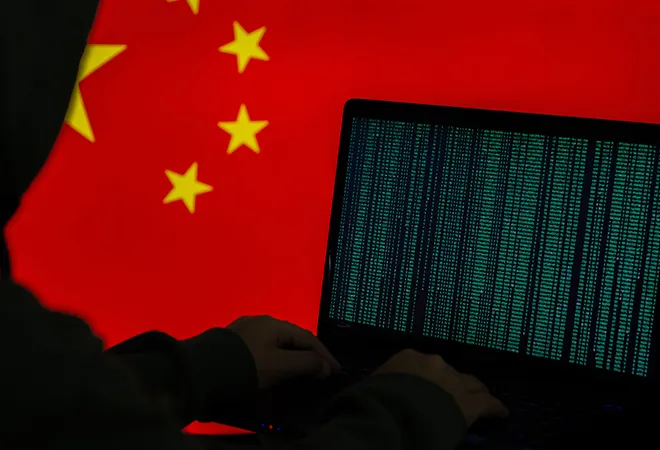Chinese Cyberespionage Escalates: A Deep Dive into the Latest Cybersecurity Threats

Chinese Cyberespionage and AI Risks in Cyber
In the ever-evolving landscape of cybersecurity, the stakes have never been higher. The latest U.S. investigation into Chinese hackers targeting telecom wiretap systems has sent shockwaves through the cybersecurity community, highlighting the escalating threat of cyberespionage. This issue is not only significant but also timely, as it underscores the urgent need for robust cybersecurity measures in an increasingly interconnected world.
The implications of this investigation extend far beyond the realm of telecom wiretap systems. It also brings to the fore the catastrophic risks associated with artificial intelligence (AI) and the recent veto of an AI safety bill in the U.S. This blog post delves into these pressing cybersecurity issues, shedding light on their broader implications for individuals, businesses, and society at large.
Chinese Hackers and Telecom Wiretap Systems
Chinese hackers have been found to target telecom wiretap systems, a revelation that has raised serious concerns about the potential misuse of these systems for cyberespionage. Telecom wiretap systems, which are designed to intercept and record communications, could provide hackers with a treasure trove of sensitive information if compromised.
Imagine a scenario where a hacker gains access to a telecom wiretap system. They could potentially eavesdrop on confidential conversations, gaining access to sensitive information such as trade secrets, personal data, or national security information. This is akin to handing over the keys to the kingdom, underscoring the gravity of this cybersecurity threat.
The Catastrophic Risks of AI
The investigation also brings to light the catastrophic risks associated with AI. AI, with its ability to learn and adapt, can be a double-edged sword. On one hand, it can enhance cybersecurity measures by identifying and responding to threats more efficiently. On the other hand, if misused, AI can be weaponized to launch sophisticated cyberattacks.
Consider a chess game where AI is the opponent. The AI learns from each move, adapting its strategy accordingly. Now, apply this to a cybersecurity context. An AI-powered cyberattack could learn from each defense mechanism, adapting and evolving to bypass security measures. This makes AI a formidable adversary in the realm of cybersecurity.
The Veto of the AI Safety Bill
The recent veto of an AI safety bill in the U.S. adds another layer of complexity to this issue. The bill aimed to regulate the use of AI, ensuring its safe and ethical use. However, its veto means that there are fewer safeguards in place to prevent the misuse of AI, potentially exacerbating the cybersecurity risks associated with it.
Analysis
The significance of these cybersecurity issues cannot be overstated. They highlight the evolving nature of cyber threats and the need for adaptive, robust cybersecurity measures. Looking ahead, we can expect these threats to continue to evolve, driven by advancements in technology and the increasing interconnectedness of our digital world.
Recommendations or Best Practices
To protect against these threats, individuals and organizations should:
- Implement robust cybersecurity measures, including firewalls, antivirus software, and secure networks.
- Regularly update and patch systems to fix vulnerabilities.
- Educate employees about cybersecurity best practices, such as recognizing phishing attempts and using strong, unique passwords.
- Consider the ethical implications of AI use and implement safeguards to prevent its misuse.
Conclusion
The escalating threat of Chinese cyberespionage, the catastrophic risks of AI, and the veto of the AI safety bill underscore the urgent need for robust cybersecurity measures. As we navigate this increasingly interconnected digital world, it is imperative that we stay informed and vigilant, ready to adapt to the evolving cybersecurity landscape.
Call to Action
Stay informed about the latest cybersecurity threats and best practices. Regularly update your cybersecurity measures and educate yourself and your team about the importance of cybersecurity. Remember, in the realm of cybersecurity, knowledge is power.
External Resources
1. Chinese State-Sponsored Cyber Espionage
2. Artificial Intelligence and Security: Challenges and Opportunities
3. The Future of AI Regulation: What Countries Need to Know